 Earlier this week, the Organisation for Economic Cooperation and Development (OECD) published the results of the Programme for International Student Assessment (PISA), which is released every three years.
Earlier this week, the Organisation for Economic Cooperation and Development (OECD) published the results of the Programme for International Student Assessment (PISA), which is released every three years.
PISA was launched in the year 2000 and investigates the performance of 15-year-olds in what is considered to be core academic disciplines (i.e. reading, maths and science).
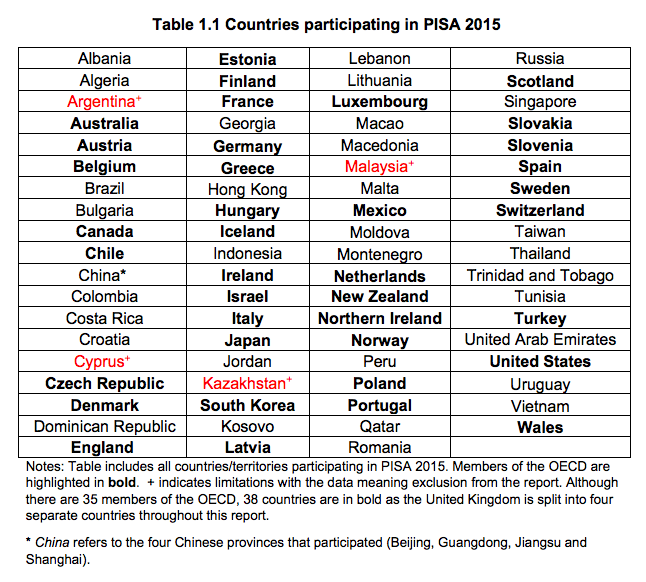
The Assessment looks at 72 countries worldwide and gets the results for some half a million students, and ‘has become the world’s premier yardstick for evaluating the quality, equity and efficiency of school systems’.
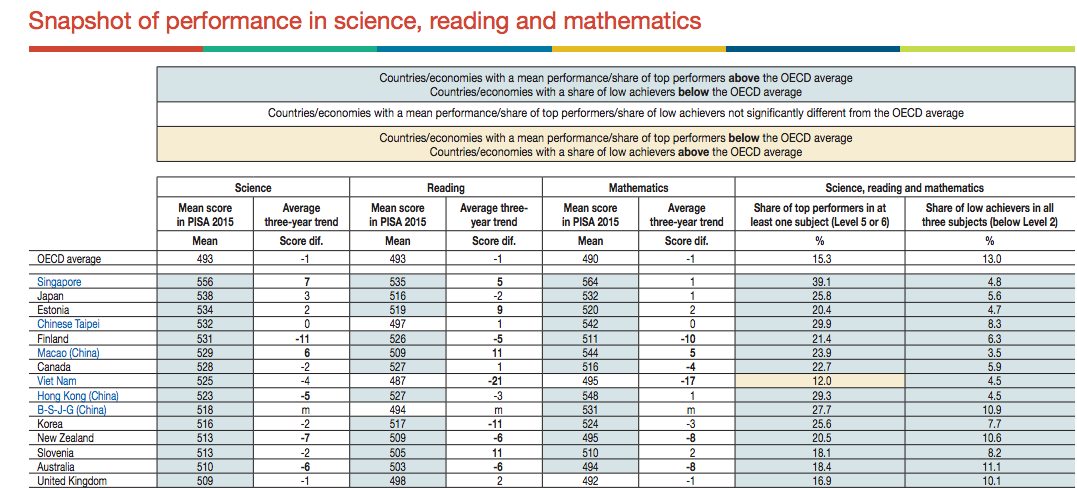
England’s Department for Education has also published PISA 2015: national report for England which provides England’s results alongside its international counterparts.
The results indicate that the UK has in fact improved in both reading and science within the world rankings, but has fallen in performance in maths. It performs well above the OECD average in science, and for the first time in reading, owed to the fall of the OECD average. As for maths, they remain at the OECD average.
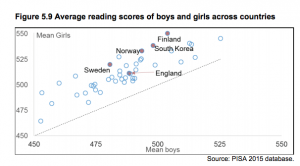 It remains that girls continue to outperform boys in reading, which is similar to most other countries. Results reveal that ‘the gender gap in England is actually slightly below the OECD average of 27 test points and much more extreme gender differences can be observed in countries like Finland, Sweden, Norway and South Korea, where there is a difference of more than 40 points.’
It remains that girls continue to outperform boys in reading, which is similar to most other countries. Results reveal that ‘the gender gap in England is actually slightly below the OECD average of 27 test points and much more extreme gender differences can be observed in countries like Finland, Sweden, Norway and South Korea, where there is a difference of more than 40 points.’
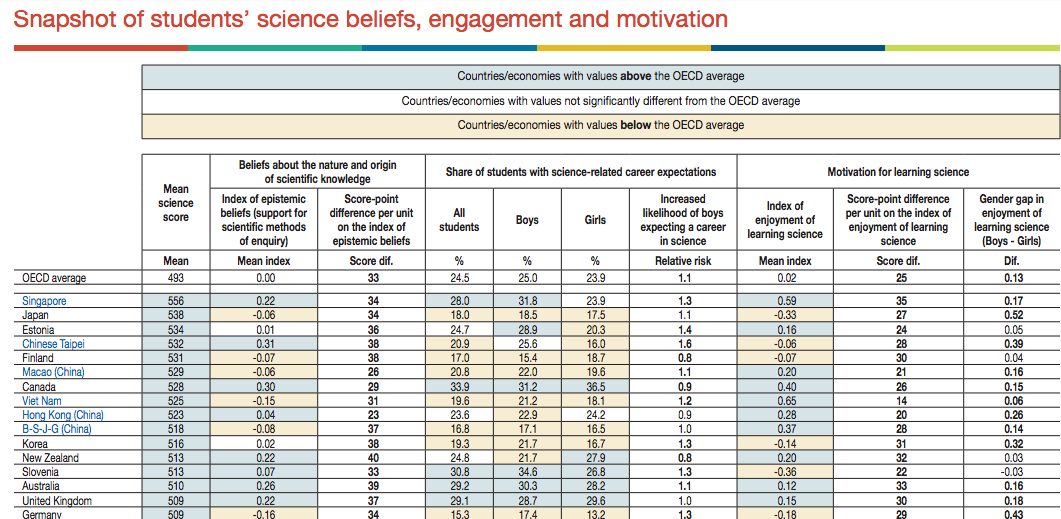
Of course, it should be noted that results do vary across the UK between England, Scotland, Wales and Northern Ireland with England scoring significantly higher. It remains a fact that family background and economic, social and cultural status (ESCS) has significant impact on performance.

This of course is not new information as research consistently supports such findings. The Social Mobility and Child Poverty Commission as well as the Economic and Social Research Council, for example, have both published work suggesting that education, ESCS, and social mobility are intrinsically linked.
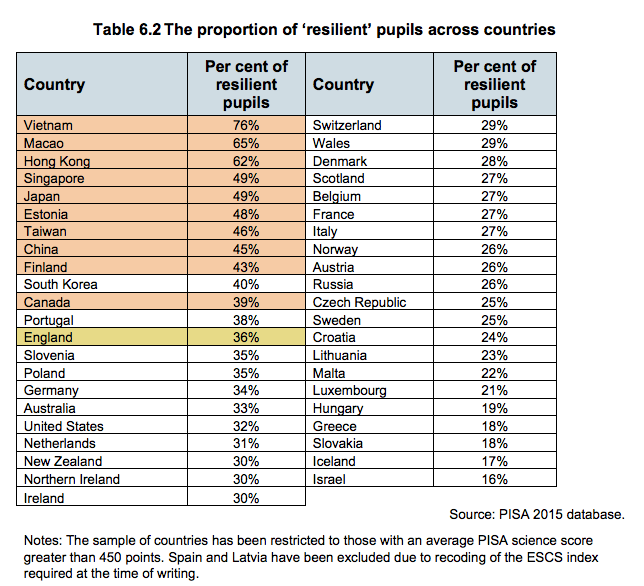
As the Table above illustrates, over a third (36%) of pupils from low ESCS are ‘resilient’. Pupil resilience ‘captures the proportion of pupils who are amongst the most socio-economically disadvantaged within their country, but who are amongst the highest-performing 15-year-olds in science internationally.’
PISA also revealed that ‘East Asian countries continue to dominate the top positions ‘with Singapore securing top position for all three disciplines. China, on the other hand, only outperforms England in maths but has similar results for the other two disciplines (DoE, 2016).
As for immigration performance, ‘pupils born in the UK are the highest-achieving group, especially when it comes to science (see Figure 6.5). These pupils obtain significantly higher scores than first-generation immigrants, with a difference of around 20 points in mathematics and around 35 test points in reading and science. The gap between UK natives and second-generation immigrants is much less pronounced, particularly in reading and mathematics, where the difference is around five test points, and statistically insignificant. However, second-generation immigrants do achieve significantly lower scores than UK natives in science (mean score of 520 versus 503).’ This is quite comparable within other countries as well.
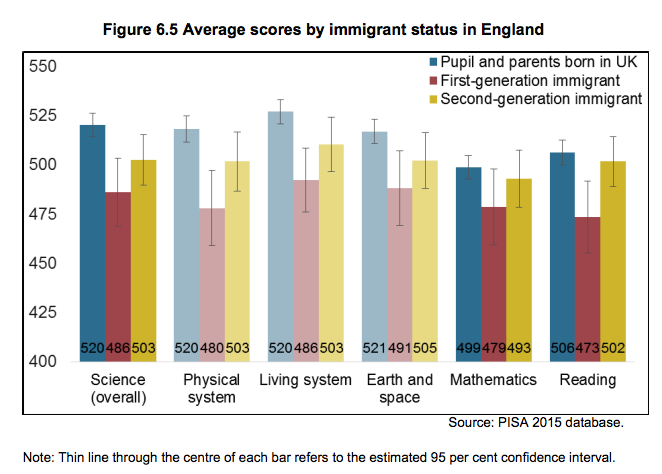
The use of activities in comparison with other countries is equally quite interesting, with England scoring low in requiring pupils to argue about science questions, allowing pupils to design their own experiments, and have class debates.
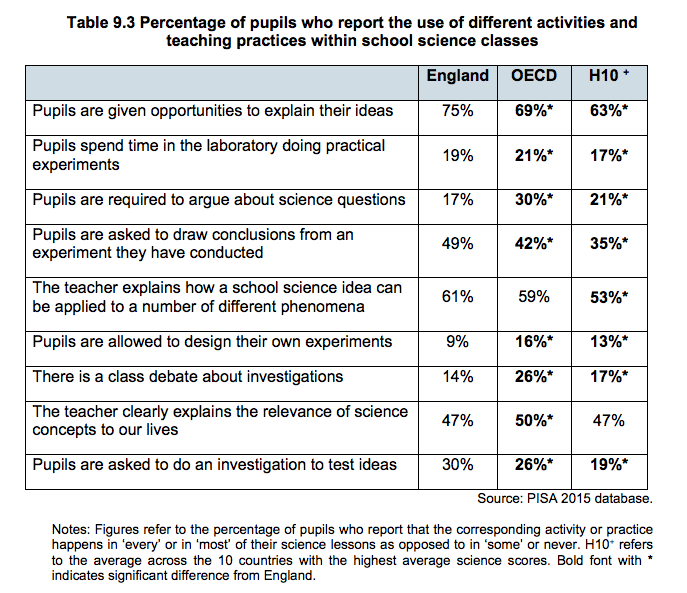
However, as the data reveals, they do have more opportunities to express themselves through explaining their ideas or even draw their own conclusions from conducted experiments.
The publication provides a wealth of data and information which provides all countries with the opportunity to rethink their own education strategy and aim to improve any challenges.